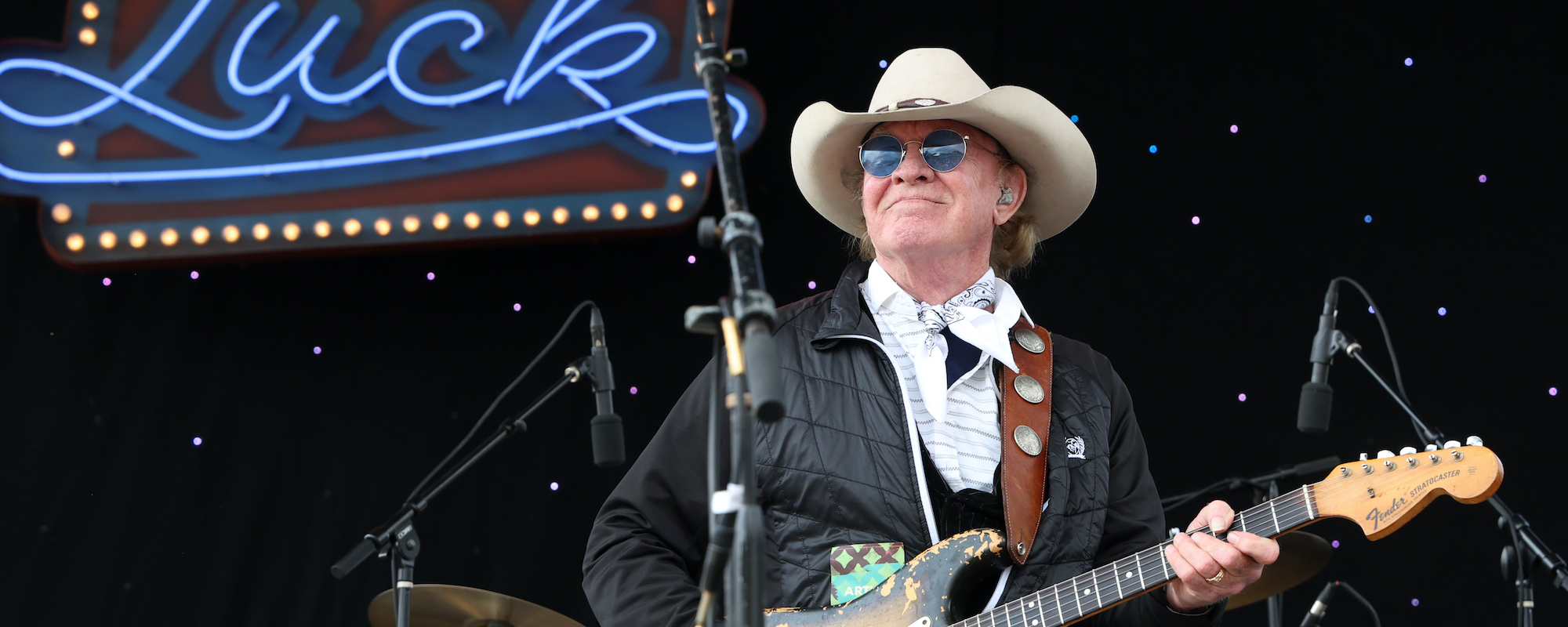During his 2023 induction into the Rock & Roll Hall of Fame in 2023, Willie Nelson recounted his earlier years, friends, and collaborators, including his country supergroup union The Highwaymen, featuring fellow outlaws Johnny Cash, Waylon Jennings, and Kris Kristofferson.
Videos by American Songwriter
In his speech, Nelson called for the overdue induction of Kristofferson and Jennings. “That was fun with [Johnny] Cash and Waylon and Kris Kristofferson,” said Nelson. “And now that Johnny [Cash} and I’ve been inducted I want to give a plug for Waylon and Kris … to be inducted, too.”
Longtime collaborator and songwriter for Elton John, Bernie Taupin also made a case for country outlaw Merle Haggard‘s entrance into the Rock Hall during his own 2023 induction speech. “A one-of-a-kind rugged all-around genius, who sets a fire under me every time I hear his songs,” said Taupin. “Rock & Roll Hall of Fame are you listening?”
Haggard lived the outlaw life from the start. Running away at 11 and stealing and writing bad checks in his teens, by the time he was 20 Haggard was incarcerated at San Quentin State Prison for robbery. Turning his life around by 1960, Haggard poured through patriotism on “The Fightin Side Of Me,” blue-collar stories of “Workin’ Man Blues,” and reflections on his outlaw ways in songs like his 1968 “Mama Tried”: Despite all my Sunday learnin’ / Towards the bad, I kept on turnin’.
Some inductees may have been questionable throughout the history of the Rock Hall, but the case for more outlaws of country music entering its ranks is an obvious one. Led by Nelson and Jennings, by the late 1960s and early 1970s, artists dubbed “outlaws” incorporated more rock, roots, and blues into country music, along with their new order of rebellion.
After Nelson moved back to Texas from Nashville in the early ’70s after his marriage ended and he lost a home in a fire, fellow Texan Jennings, who relocated to Tennessee in 1965, stayed behind. The two reconnected in the 1970s and pioneered the outlaw country brigade, which was rounded out by the likes of Cash, Haggard, Emmylou Harris, and Hank Williams Jr., among others.
Throughout the 1970s, Nelson and Jennings toured, collaborated, and first appeared together on the 1976 compilation Wanted! The Outlaws, along with Jennings’ wife Jessi Colter and Tompall Glaser.
By 1978, the pair released their debut collaborative album, Waylon & Willie, featuring their country hit “Mammas, Don’t Let Your Babies Grow Up To Be Cowboys.”
With Jennings and Nelson leading the pack, outlaw country exposed more of its roots in blues, folk, and honky tonk through the earliest stages of rock and roll and ’50s rockabilly. Even Jennings started out playing in the rockabilly group the Waylors, while Haggard pulled from his earlier influences like Rock & Roll Hall of Famer Hank Williams and Lefty Frizzell.
“For us, ‘outlaw’ meant standing up for your rights, your own way of doing things,” said Jennings in his 1996 autobiography Waylon. “It felt like a different music, and ‘outlaw’ was as good a description as any.”
Purveyors of progressive country, prior to the outlaw movement, Nashville was under record label control, and artists like Nelson and Jennings pushed back to gain as much control of their artistry as they could.
Outlaws made movement and delivered more gritty, raw rock and roll to country, from fighting labels to run-ins with the law—something Jennings also chronicled in his 1978 song “Don’t You Think This Outlaw Bit’s Done Got Out of Hand,” reflecting on a cocaine bust that left him shaken.
Who should be inducted into the Rock & Roll Hall of Fame will always be a contentious subject, but the impact and influence outlaws like Jennings, Haggard, and others had along their way is undeniable.
Photo: David Redfern/Redferns













Leave a Reply
Only members can comment. Become a member. Already a member? Log in.